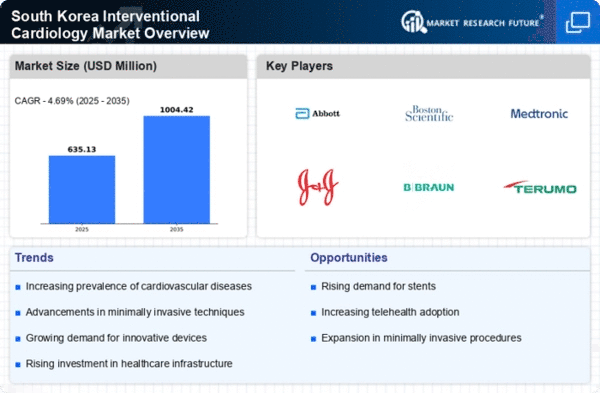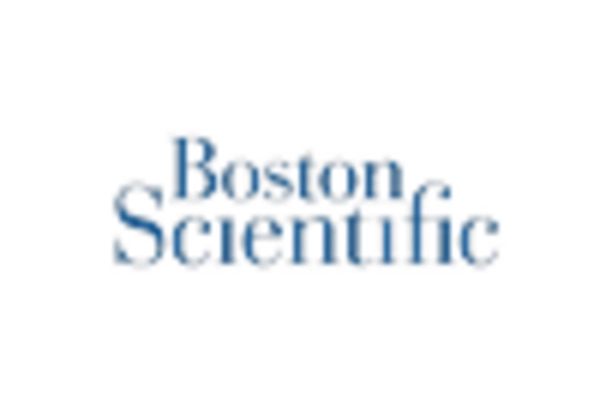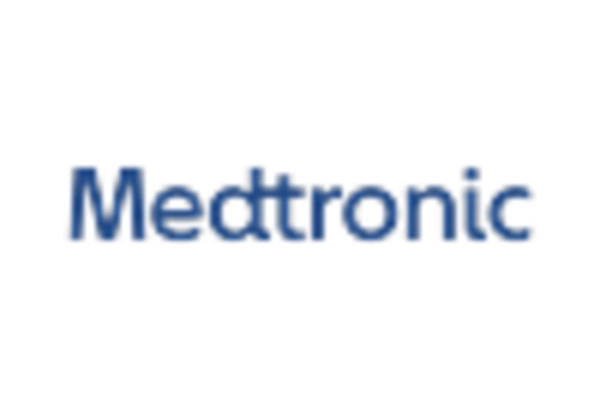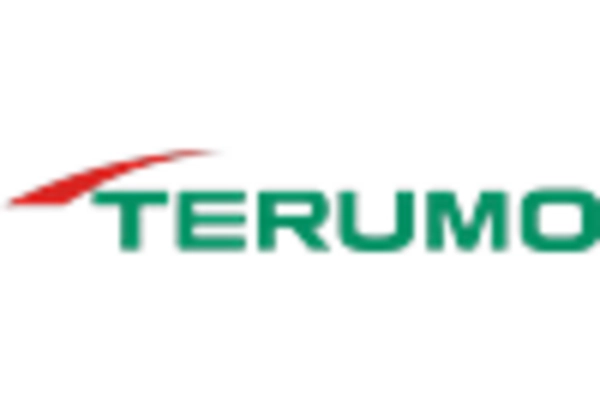Rising Aging Population
The aging population in South Korea is a crucial driver for the interventional cardiology market. As individuals age, the risk of cardiovascular diseases increases significantly. According to recent statistics, approximately 15% of the South Korean population is aged 65 and older, a figure projected to rise to 24% by 2030. This demographic shift necessitates advanced interventional cardiology procedures to manage age-related heart conditions. The growing number of elderly patients is likely to increase the demand for innovative treatments and technologies in the interventional cardiology market, thereby driving market growth. Furthermore, healthcare providers are adapting to this trend by enhancing their services and investing in new technologies to cater to the needs of this demographic, which may further stimulate market expansion.
Increased Healthcare Expenditure
South Korea's healthcare expenditure has been on an upward trajectory, which positively influences the interventional cardiology market. The government has been investing heavily in healthcare infrastructure, with total healthcare spending reaching approximately $200 billion in 2025. This increase in funding allows for the acquisition of advanced medical technologies and the implementation of cutting-edge interventional cardiology procedures. As hospitals and clinics enhance their capabilities, the availability of sophisticated treatment options is likely to rise, attracting more patients seeking care. Additionally, the emphasis on preventive care and early intervention may lead to a higher volume of procedures performed, further propelling the interventional cardiology market. The trend of increased healthcare expenditure suggests a robust environment for growth and innovation in this sector.
Growing Awareness of Heart Health
There is a notable increase in public awareness regarding heart health in South Korea, which serves as a significant driver for the interventional cardiology market. Campaigns promoting cardiovascular health and the importance of regular check-ups have gained traction, leading to more individuals seeking medical advice and intervention. This heightened awareness is reflected in the rising number of patients diagnosed with cardiovascular conditions, which has increased by approximately 10% over the past five years. As more people recognize the risks associated with heart diseases, the demand for interventional cardiology services is likely to grow. Healthcare providers are responding to this trend by offering educational programs and resources, which may further enhance patient engagement and drive market growth in the interventional cardiology market.
Regulatory Support for Advanced Therapies
Regulatory support for advanced therapies is emerging as a vital driver for the interventional cardiology market in South Korea. The government has implemented policies aimed at expediting the approval process for innovative medical devices and procedures. This regulatory environment encourages manufacturers to invest in research and development, fostering a culture of innovation within the interventional cardiology market. As a result, new therapies and technologies are likely to reach the market more quickly, enhancing treatment options for patients. Furthermore, the collaboration between regulatory bodies and industry stakeholders may lead to improved standards and practices, ultimately benefiting patient care. The supportive regulatory framework appears to be a key factor in driving growth and advancement in the interventional cardiology market.
Technological Innovations in Medical Devices
Technological innovations in medical devices are transforming the landscape of the interventional cardiology market. South Korea is witnessing rapid advancements in catheter-based technologies, stents, and imaging systems, which enhance the precision and effectiveness of cardiovascular interventions. The market for interventional cardiology devices is projected to grow at a CAGR of 8% from 2025 to 2030, driven by these innovations. Companies are increasingly focusing on research and development to create minimally invasive solutions that reduce recovery times and improve patient outcomes. As these technologies become more accessible, healthcare providers are likely to adopt them, thereby expanding the interventional cardiology market. The continuous evolution of medical devices indicates a promising future for the industry, with potential for improved treatment options.
















